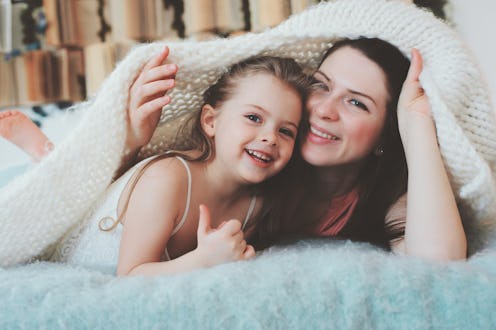
You might expect that telling a 6-year-old one of her parents is transitioning genders would be a heavy, emotional event. But if Shalee Olivia Ellis' daughter Layla's reaction to her other parent Mallory's transition is any indication, a gender transition is not so big a deal for someone who hasn't yet learned to be hateful or afraid of transgender people.
When Ellis first explain that Mallory, whom Layla had considered her dad, was transitioning, Layla was initially a bit surprised. "Daddy's a she now?" she asked.
"Yeah, how does that make you feel?" Ellis responded.
"Good!" Layla responded emphatically. "I want to be like a boy."
When her mom explained that they'd gotten "Daddy" new clothes and makeup and asked Layla if she was OK with that and understood Mallory would be the same person, she responded, "Yeah." She also gave a thumbs up to the new name. "Daddy, I love you so much. Even though you're a 'her,' I still love you," she said.
“This video proves that hatred is a learned trait, and if we as adults can change the way we talk about individuals who identify as transgender, then we have an opportunity to take a bite out of transphobia and discrimination against trans people with the upbringing of a generation that loves their fellow man unconditionally," Ellis told Buzzfeed.
Some on the right have expressed concern that if society accepts trans people, their children could suffer for it. "Imagine how, as a child, you would have struggled as you tried to process seeing Aunt Tina as a woman last year, and then, when she returns for a visit this year, understanding how to respond to Uncle Tim with a full beard," Denise Shick wrote in The Federalist.
But Layla's reaction suggests that any discomfort children might feel around transgender relatives can be prevented by teaching them acceptance. In fact, a recent study in Pediatrics found that transgender children don't even suffer from mental health issues when they're accepted. The problem seems to be not with trans people themselves but with how we view them, and with more parents like Layla's, that can quickly change.
Images: Fotolia